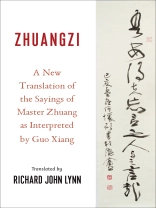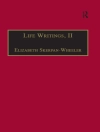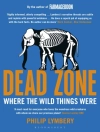The Zhuangzi (Sayings of Master Zhuang) is one of the foundational texts of the Chinese philosophical tradition and the cornerstone of Daoist thought. The earliest and most influential commentary on the Zhuangzi is that of Guo Xiang (265–312), who also edited the text into the thirty-three-chapter version known ever since. Guo’s commentary enriches readings of the Zhuangzi, offering keen insights into the meaning and significance of its pithy but often ambiguous aphorisms, narratives, and parables.
Richard John Lynn’s new translation of the Zhuangzi is the first to follow Guo’s commentary in its interpretive choices. Unlike any previous translation into any language, its guiding principle is how Guo read the text; Lynn renders the Zhuangzi in terms of Guo’s understanding. This approach allows for the full integration of the text of the Zhuangzi with Guo’s commentary. The book also features a translation of Guo’s complete interlinear commentary and is annotated throughout.
A critical introduction includes a detailed account of Guo’s life and times as well as analysis of his essential contributions to the arcane learning (xuanxue) of the fourth century and the development of Chinese philosophy. Lynn sheds new light on how the Daoist classic, which has often been seen as a timeless book of wisdom, is situated in its historical context, while also considering it as a guide to personal cultivation and self-realization.
विषयसूची
Acknowledgments
Translator’s Note
Introduction
Part I: The Sayings of Master Zhuang, the Inner Chapters
1. Xiaoyao you [Spontaneous Free Play]
2. Qi wu lun [On Regarding All Things Equal]
3. Yangsheng zhu [The Mastery of Nurturing Life]
4. Renjian shi [The Ways of the World]
5. Dechong fu [Tally of Virtue Replete]
6. Da Zongshi [The Great Exemplary Teacher]
7. Ying Diwang [Fit to Be Sovereigns]
Part II: The Sayings of Master Zhuang, the Outer Chapters
8. Pianmu [Webbed Toes]
9. Mati [Horses’ Hooves]
10. Quque [Ransack Chests]
11. Zaiyou [Let Things Freely Be]
12. Tiandi [Heaven and Earth]
13. Tiandao [The Dao of Heaven]
14. Tianyun [The Revolving of Heaven]
15. Keyi [Honing the Will]
16. Shanxing [Mending One’s Original Nature]
17. Qiushui [Autumn Floods]
18. Zhile [Perfect Joy]
19. Dasheng [Understand Life]
20. Shanmu [The Mountain Tree]
21. Tian Zifang
22. Zhi beiyou [Knowledge Wanders North]
Part III: The Sayings of Master Zhuang, the Miscellaneous Chapters
23. Gengsang Chu
24. Xu Wugui [Easygoing the Fearless]
25. Zeyang
26. Waiwu [External Things]
27. Yuyan [Words Attributed to Others]
28. Rangwang [Refusing Rulership]
29. Dao Zhi [Robber Zhi]
30. Shuojian [Discourse on Swords]
31. Yufu [The Old Fisherman]
32. Lie Yukou
33. Tianxia [All Under Heaven]
Appendix A: Prefaces and Postface
Appendix B: Lost Works Attributed to Guo Xiang
Appendix C: Xiang Xiu and Guo Xiang Comments Compared
Appendix D: Sima Qian, “Biography of Master Zhuang”
Glossary of Terms
Glossary of Proper Nouns
Bibliography
Index
लेखक के बारे में
Richard John Lynn is professor emeritus of Chinese thought and literature at the University of Toronto. His previous Columbia University Press books are The Classic of Changes: A New Translation of the I Ching as Interpreted by Wang Bi (1994) and The Classic of the Way and Virtue: A New Translation of the Tao-te Ching of Laozi as Interpreted by Wang Bi (1999).












